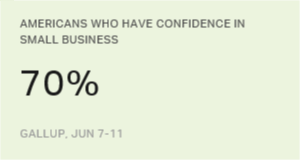PRINCETON, NJ -- Public optimism about the U.S. economy -- although still scarce, with only 27% of Americans saying the economy is getting better and 67% saying it is getting worse -- is now broader than at any point in Gallup's 15 months of daily consumer polling.
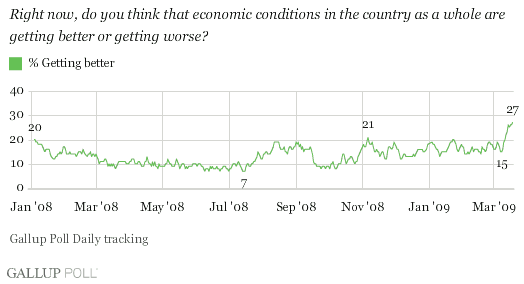
The 27% "getting better" figure, from March 17-19 Gallup Poll Daily tracking, is up from 15% recorded March 7-9. It is the highest economic optimism reading Gallup has recorded since daily tracking began in January 2008, and, according to Gallup's monthly economic readings prior to that, the highest since July 2007.
Gallup began to see significant improvement in Americans' evaluation of the economic direction last week, coinciding with the start of a sustained rebound in the Dow Jones Industrial Average since that index sank to a 12-year low on March 9. With the Dow closing up on six of the last eight trading days, Americans have clearly had a basis for feeling encouraged about the economy.
As reported on gallup.com Thursday, Gallup finds no recent increase in consumers' self-reported retail spending, or in worker perceptions about hiring conditions at their companies, suggesting any real impact from the improved optimism on the economy is yet to be felt.
Along the same lines, Gallup tracking finds little improvement in consumer perceptions of the economy's current state. Polling from the same March 17-19 period finds 57% of Americans calling economic conditions "poor," only slightly better than the 63% from March 7-9.
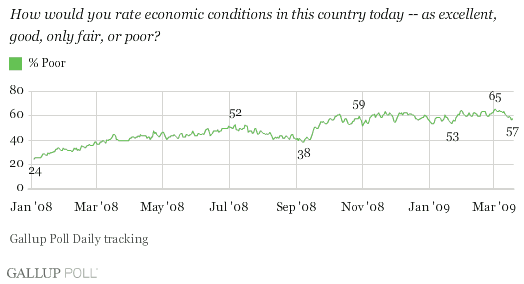
Among different income groups, the most dramatic increase in economic optimism in March has been among those earning $90,000 or more -- not surprising, given upper-income Americans' greater investment in the stock market. In this group, optimism has grown from 10% saying the economy is "getting better" in early March to 27% this week. This top-earning group was initially the least likely to say the economy is getting better, but is now on par with middle-income earners, and closely trails low-income Americans in its outlook.
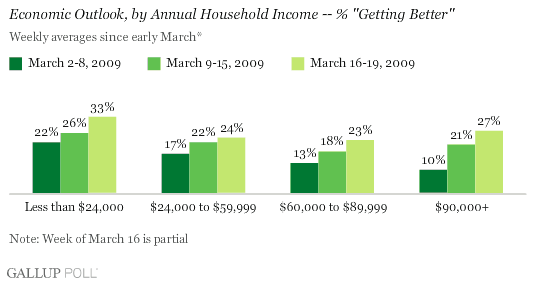
Improved economic optimism is seen among all partisan groups, but, in accordance with the shifts seen by income, the increase is particularly sharp among Republicans. (Republicans' household income skews higher than that of independents and Democrats.) The percentage of Republicans saying the economy is getting better has advanced from an average of 8% for the week spanning March 2-8 to 20% thus far in the week that began on March 16. This 12-point gain compares with a 9-point gain among Democrats and a 7-point gain among independents.
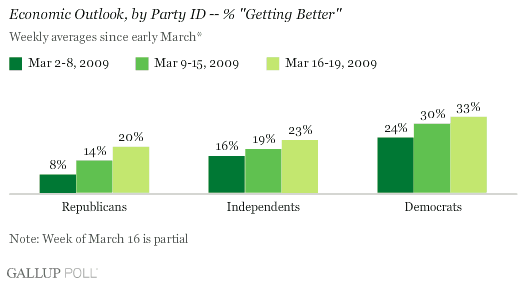
Survey Methods
Results are based on telephone interviews with 1,464 national adults, aged 18 and older, conducted March 17-19, 2009, as part of Gallup Poll Daily tracking. For results based on the total sample of national adults, one can say with 95% confidence that the maximum margin of sampling error is ±3 percentage points.
Interviews are conducted with respondents on land-line telephones (for respondents with a land-line telephone) and cellular phones (for respondents who are cell-phone only).
In addition to sampling error, question wording and practical difficulties in conducting surveys can introduce error or bias into the findings of public opinion polls.
